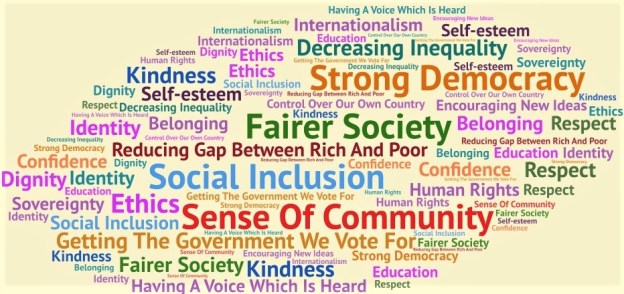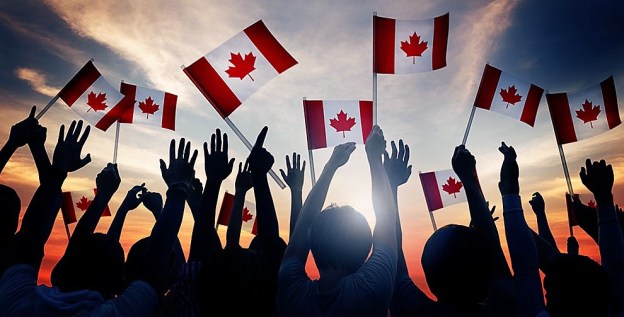Near the end of the first semester of my second year in grade eleven, during which time I was seventeen, discouraged, and not faring particularly well, my parents came home from an interview with my history teacher, in just his second year of teaching at the time.
“He told us you’re no ball of fire,” my mother said.
“He said you’re something of a laggard,” my father said.
A laggard!
There’s no question I was floundering in his class. But rather than explaining for my parents what I was doing wrong, suggesting how I might do better, or proposing how he might more effectively help me, he resorted to affixing me with a label.
Laggard!
I was angry with that teacher for a long time. And I was stung by the disappointment in my parents’ eyes.
* * * * * * *
Seventeen years later, at the age of thirty-four, I was a first-year principal in the same school district. At a principals’ association meeting during the winter semester, I was with a number of colleagues in the men’s room, washing up after our business meeting. As we stood at the urinals and wash-basins, one of our number told an off-colour joke, the details of which I forget. But it involved people of colour, and was not flattering to them. Several people laughed heartily.
As the laughter abated, and before someone else could tell another joke, one veteran principal—small in stature, fiery by nature—angrily tore a wad of paper towel from the dispenser.
“I’m sorry!” he snapped as he slammed the paper into the wastebasket. “I make it a practice never to laugh at racist jokes!”
In the ensuing, abashed silence, I stared at myself in the mirror over the sink—glad I had not been one of those who’d laughed, somewhat ashamed I had not spoken up as my colleague had.
Pausing at the door, the man added, “I’m not saying all of you are racist. But somebody told that joke, and a lot of you laughed!”

I approached him near the bar a few moments later, introduced myself, and thanked him.
“For what?” he said, looking up at me, his eyes a piercing blue.
“For what you said in the men’s room,” I answered. “I wish I’d had the courage to say that.”
“Did you laugh at the joke, son?” he asked.
“No.”
“Well, that’s good,” he said. “Can I buy you a beer?”
We stood off to one side, no one else apparently eager to engage with him just then. And in his short, sharp manner of speaking, he proceeded to help me learn some valuable lessons.
“It never makes things better when you accuse people of being racists,” he said. “Never helps! Doesn’t help to accuse them of being misogynists, either, or xenophobes. Accusations only lead to denials.”
I nodded and sipped.
“Labels are easy to deny,” he continued. “Labelling never works! But you know what’s harder to deny?”
“What?” I asked.
“When you describe people’s behaviour to them. When you tell them what you’ve seen them doing. They’ll recognize it. And telling them what you’ve heard them saying. They’ll remember their own words. And maybe, just maybe, they’ll start to realize what they’re doing or saying is inappropriate.”
“Like referencing the laughter in the men’s room,” I said.
“Exactly!”
I waited, hoping for more.
“It’s the same thing I encourage my teachers to do,” he said. “Don’t label your students! Describe their strengths and needs, describe their accomplishments and shortcomings. Describe for them the things they need to do in order to succeed. By doing that, you’ll know better how to help each of them take the next step. Labelling kids never helps. Labelling anybody never helps!”
We were called to dinner about then, and went off to our respective tables. I encountered him many more times over the years, of course, but I never forgot the things he said on that first occasion. He was the first man I ever knew who didn’t just profess to be anti-racist; he demonstrated his true colours through his actions and words. And he did it fearlessly. To use a common phrase, he walked the talk.
I’ve been thinking about him over these past couple of weeks of racial turmoil, here in Canada and especially south of the border, wondering what advice he’d have for me. As I watch TV and read news accounts online, I’m struck by the ferocity of the back-and-forth arguments and name-calling between those accusing others of racism and those others denying it.
Racist! Terrorist! Fascist! Leftist! Boogaloo! Antifa!
I search, often in vain, for factual descriptions of what is actually happening—what people are doing, how people are behaving—so that I might determine for myself how they could take a next step toward reconciliation.
And I applaud those who propose concrete steps toward that end, most of which will require a good deal of time and hard work to achieve. To paraphrase Martin Luther King, Jr., the ultimate measure of people is not where they stand in moments of comfort and convenience, but where they stand at times of challenge and controversy.

My principal colleague was one such person. He believed that leadership and learning are indispensable to each other. He believed that good teachers tell; average teachers explain; superior teachers demonstrate; and great teachers inspire.
He certainly inspired me.
Accusations and labelling never work.
* * * * * * *
A coda: At the age of forty-nine, thirty-two years after that history teacher labelled me a laggard, I met him again. He was retiring from the classroom, and I—by then CEO of the school district for which he now worked—was presiding at a ceremony to honour our retiring employees. I shook hands with every one of them, most of whom did not know me personally, of course. But that teacher remembered.
“I guess I was wrong about you,” he had the temerity to say, more sheepish than apologetic.
Being only human, I had to stifle that long-ago, seventeen-year-old boy within me, who wanted to reply, “Thirty-five years and still a classroom teacher, eh? Who’s the laggard now?” Vengeful.
Instead, I said, “Thirty-five years as a classroom teacher! You’ve certainly affected a lot of kids over all that time.” Serene.
“For better or worse,” he said, smiling at his own wit.
“Indeed!” I said, and moved on.




